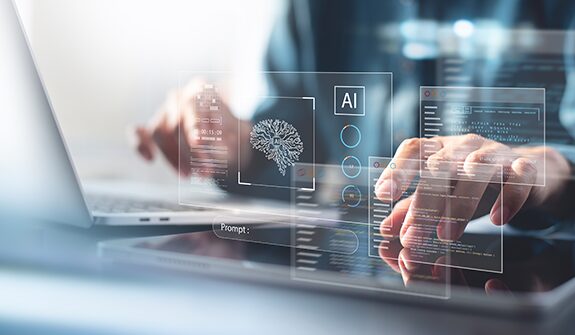While Artificial Intelligence is set to be one of the most transformative tools of our time, its impact—good or bad—depends entirely on how we design, regulate, and implement it. In Part One we explored The Dark Side of AI, and Part Two touched on The Positive Side of AI. Now, Part Three focuses on the human-AI partnership and how we shape AI’s future to ensure it serves everyone.
At the heart of responsible AI development is human oversight. AI doesn’t operate in a vacuum; it learns from the data we feed it, the rules we set, and the biases we either mitigate or reinforce. We must prioritize transparency and accountability so we can build AI that drives innovation, reflects a richness of perspective, and benefits society as a whole.
AI as a Tool: Shaped by Human Intent
AI is often portrayed in extremes, either as a threat to humanity or a miraculous solution to all our problems. In reality, AI is neither. It’s a tool, and like any tool, its impact depends on how we use it. The decisions we make today, like how we build, deploy, and govern AI, will define its trajectory for years to come.
Technologists, policymakers, and business leaders all play a critical role in shaping AI’s future. Engineers and developers determine how AI systems learn and make decisions, while policymakers establish guardrails to prevent harm and ensure fairness. Leaders in tech have a responsibility to prioritize responsible AI, embedding transparency, accountability, and inclusivity into the very fabric of innovation.
Without these, AI can reinforce biases, widen inequalities, and create unintended consequences. But with responsible oversight, AI can be a force for good, driving innovation while ensuring that progress benefits everyone, not just a select few.
The Role We All Play in Shaping Responsible AI
AI is only as fair and effective as the people building it. Robust leadership is essential for developing AI systems that work for everyone. When different perspectives are represented and presented at the decision-making table, AI is more likely to be well-rounded.
Women in AI are already driving change, advocating for transparency, challenging bias in algorithms, and leading responsible AI initiatives. Leaders like Timnit Gebru, who exposed bias in AI models, and Dr. Joy Buolamwini, founder of the Algorithmic Justice League, are pushing the industry toward more ethical standards. Their work proves that when diverse voices shape AI, the technology serves a broader, more equitable purpose.
To build AI that truly benefits society, we must all play a role, demanding accountability, prioritizing fairness, and ensuring AI reflects the richness of human experience.
The Real-World: AI Done Right and Wrong
The impact of AI isn’t theoretical; we see it playing out in real-world applications, for better or worse. When built responsibly, AI has the power to drive meaningful progress. NASA’s AI-driven Dagger model, for example, analyzes satellite data to predict solar storms, providing critical advance warnings to protect power grids and infrastructure.
On the other hand, poorly implemented AI can cause real harm. New York City’s AI-powered business chatbot, designed to help small businesses navigate regulations, was found giving inaccurate, and even illegal, advice, such as suggesting that restaurants could serve food contaminated by rodents. As AI becomes more integrated into public services, its accuracy and ethical design are more important than ever.
These cases highlight a critical truth: AI reflects the priorities of those who create and govern it. Technologists must build with transparency, business leaders must prioritize fairness, and policymakers must set guardrails that protect communities.
It’s Time to Take Responsibility
The future of AI is in our hands. With responsible development and oversight, AI has the potential to drive innovation while creating a more innovative, robust world. But to get there, we must all take an active role in shaping AI’s future, advocating for fairness, transparency, and accountability at every stage of its development. As leaders in tech, we have the power to influence the direction of AI. Let’s use it to build a future where technology works for everyone.
Join us in this critical conversation at the AnitaB.org Tech Collaborative: The Responsible AI Forum, March 24-26, 2025, in Chicago. Together, we can shape a future where responsible AI is the standard, not the exception.
Read more posts from the thread It’s About More Than Tech: Black Women Drive Society

